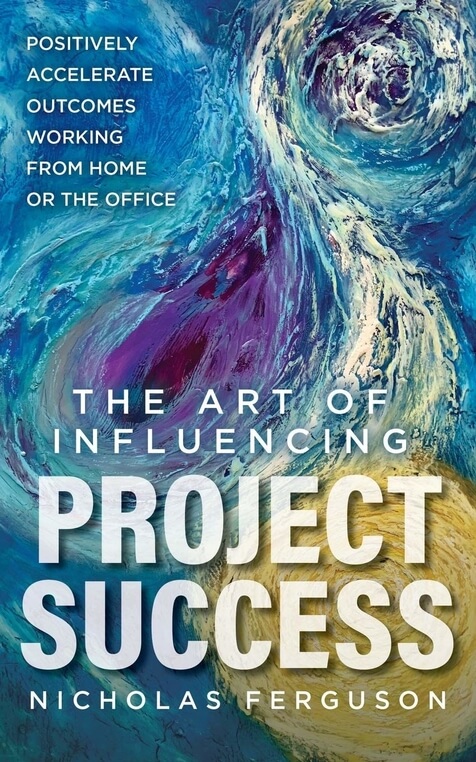
Nicholas Ferguson, a successful technical advisor, suggests new, innovative, and at times radical ways to view one’s work life in The Art of Influencing Project Success: Positively Accelerate Project Outcomes Working from Home or the Office.
A uniquely wide-ranging self-help guide, Ferguson’s book examines the way that project management can be successfully achieved through broadened perspective. He recounts that from childhood he had an innate belief that the universe from its smallest particle was charged with energy. In the same way, our work and the projects we undertake are imbued with energies that need to be recognized and channeled. Ferguson cites both scientific knowledge from Newton to Einstein, and emotional/psychological disciplines including the art of meditation.
He offers many examples of the critical fusion of our physical being, which can determine our activity level and general approach to problem solving, with our deep-seated mental and emotional awareness. He believes that we have a tendency to resist change, resulting in slowed-down strategies of dealing with projects and problems. Once we learn to free ourselves from that resistance by seeing the positive elements of the introduction of change, we will speed up in thinking and acting, and will see this acceleration affect our co-workers.
He helpfully gives examples from his own life to help clarify his ideas. For instance, he gives an example of a time when he was told by management to begin reporting to a new supervisor; this felt like a demotion, so he began to resist it mentally, becoming increasingly frustrated, angry, and depressed. Gradually he overcame his resistance, seeing some positives: the new mandate might actually decrease his workload. From there he was able to perceive certain other positives about the new supervisory pattern.
He also presents the example of a friend who so empathized with the disadvantaged people with whom he worked that he was unable to offer them any real help, even though he wished to do so. Ferguson advised meditation practice and the need to see in the people he wished to help some positive possibilities related to their ability to help themselves. Little by little his friend conquered his mental blockage and suddenly began to find ways to create the supports needed and enlist people who could help make his wish a reality. In this way, Ferguson mixes the universal with the personal – his examples are recognizable, even archetypal, so they will have applications to a wide array of situations.
Ferguson, a lively wordsmith, carefully does not offer himself as an exemplar despite his sincere wish to impart a multilayered and potentially very helpful strategy to anyone involved in project work, whether personal or professional. He often stresses that this book can be absorbed by its readers according to their individual levels of resistance and energy. But he reminds readers that if they follow his methodology, they will find that their work flows faster and more positively, and that their newfound outlook spreads to their team members. His modesty is refreshing, as well as persuasive, as he is not an author promising easy fixes, or unrealistic goals, as can be found in this field.
Importantly, his template can be applied to Covid and the current need for working from home, but it is also a general formula applicable to a multitude of circumstances, making the work both timely and far-reaching. Though Ferguson’s work is human-scale and filled with basic examples, it is also complex and fascinating, offering possibilities for work life, relationship building, and a host of other necessary life skills.
Book Links
STAR RATING
Design
Content
Editing
Get an Editorial Review | Get Amazon Sales & Reviews | Get Edited | Get Beta Readers | Enter the SPR Book Awards | Other Marketing Services























Leave A Comment